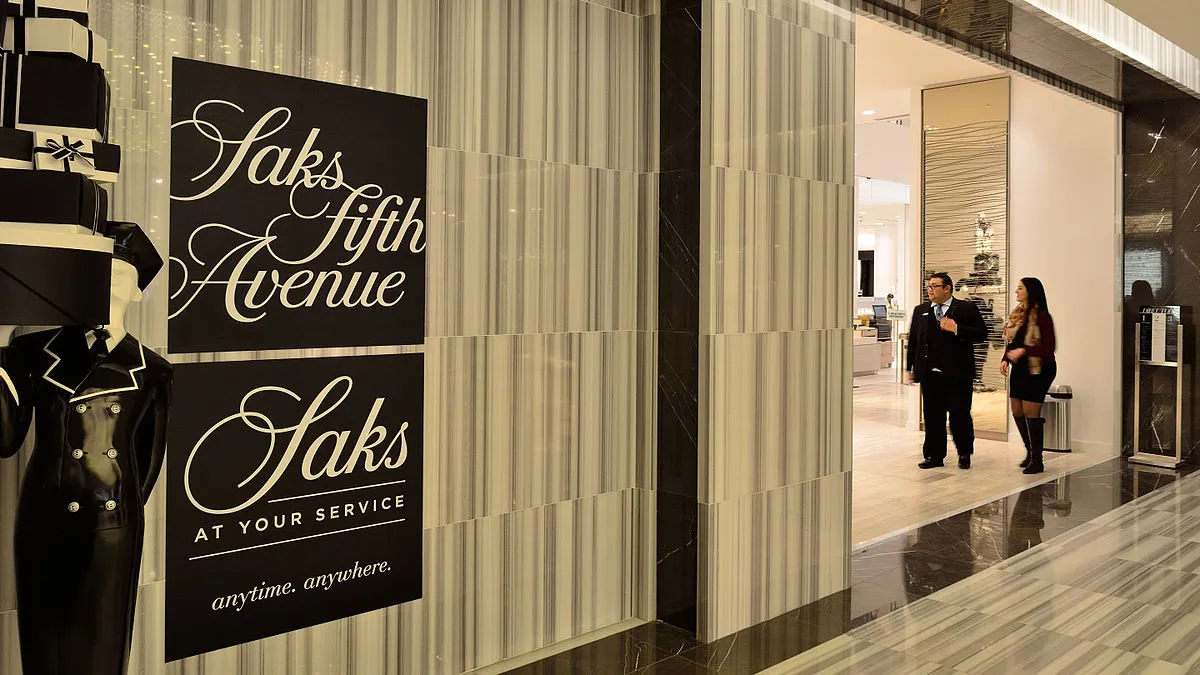Dive Brief:
-
Cartier last week filed a complaint in the New York Supreme Court alleging that changes resulting from Saks Fifth Avenue's renovation of its New York City flagship entail a violation of their lease agreement because of debris and destruction during the process and because the luxury jeweler's products are no longer prominently displayed at the department store, according to court documents. The lawsuit seeks $40 million in damages.
-
Saks answered the Oct. 3 lawsuit with one of its own two days later disputing several aspects of Cartier's allegations, including that it improperly moved Cartier's concession, and asking for $55 million. Cartier didn't immediately return Retail Dive's requests for comment. A spokesperson for Saks Fifth Avenue and Hudson's Bay Company referred Retail Dive to court documents.
-
Saks Fifth Avenue owner Hudson's Bay Co . is depending on the banner as a strength. The company's second-quarter overall comparable sales declined 0.4%, but Saks comps grew 6.7%.
Dive Insight:
Saks is in the midst of a physical and branding revamp, which it admits in court documents has been disruptive to Cartier's original, prominent location in the front of the first floor of its flagship. But the crux of Saks's answer to Cartier's claims is that the legacy department store proposition must be altered to create a store experience that can't be found online.
"Over the course of three years, Saks is creating destinations for Saks customers that cannot be duplicated online," the retailer and its attorneys said in a court filing. "In short, Saks has set out to redefine what a department store is: what is the customer experience on the ground floor upon entering the building; what draws the customer to other floors with other departments; how does Saks distinguish that experience from shopping online; what encourages customers to shop in multiple departments once arriving at their destination? Traditional department stores have had conventional departments with differing assortments and that has not proven successful enough. Saks' new model will do much more."
Indeed, the company last year essentially deconstructed the department store in nearby Greenwich, Connecticut, where it wrenched apart three of its departments into a trio of specialty shops, including its new jewelry section, "The Vault," which Saks says is an option for Cartier in New York. "As customers travel to and from The Vault, they will be drawn into shopping experiences that are not duplicated anywhere else in the country," the department store says of its Vault space at its flagship.
The dispute underscores the tensions between department stores' need to evolve, which has in part been impressed upon them by the pullback from upscale brands, and brands' resistance to change. Coach, Michael Kors and Ralph Lauren have all sought to exit or slow sales through that channel, with an aim to reclaim more upscale cred and sell directly to customers. Those brands have seen sales suffer as a result, though many analysts see that as short term pain that will pay off in the long run.
Beyond that, though, the upscale department store says that it let Cartier know about its new approach.
"Saks has recently embarked upon a complete reimagining and renovation of the New York store and offered Cartier a prime location to participate in this grand new venture," the company said in its filing. "For reasons that remain a mystery, Cartier declined. Saks was forced to terminate Cartier's license, invoking a provision of the license that allowed Saks to do so following a 'material change' in the store's 'business model' or 'matrix.'"
"The reasoning behind the change has been communicated to Cartier on many occasions," Saks also said. "Brick-and-mortar stores are becoming a touchpoint of the shopping experience, not the end destination for a purchase. As retail has changed, it has been imperative for Saks to evolve for the future in order to continue to compete."















